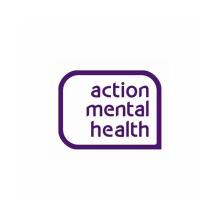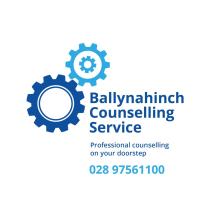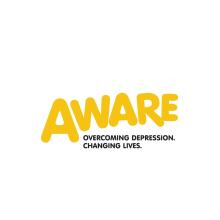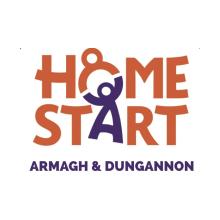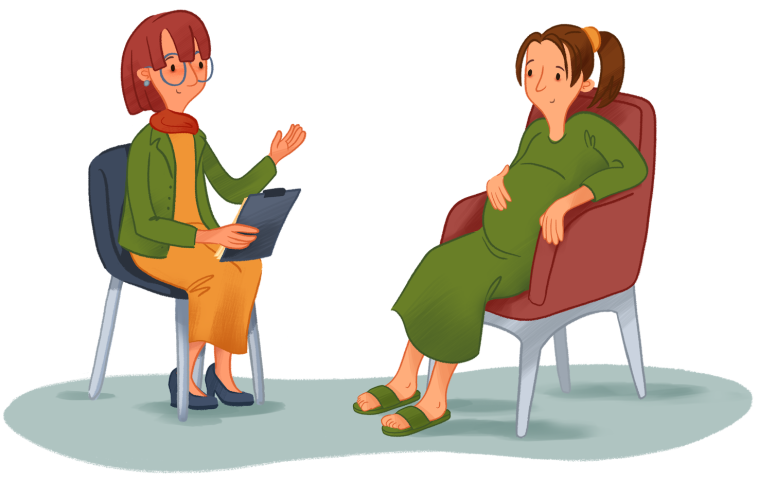
Perinatal mental health
Becoming a parent is a big life event. Having a baby is a special and memorable time, but it can also be difficult and impact mental health and wellbeing. Help and support is available.

What is perinatal mental health?
Perinatal mental health is experienced anytime from becoming pregnant up to a year after giving birth. Having a baby is a life-changing event. It is natural to experience a range of emotions, but if your symptoms last more than a few days or start to impact your daily life, it may be a perinatal mental health illness such as perinatal depression or perinatal anxiety.
These conditions will likely not improve on their own without advice and support. It’s important to get medical advice if you have any of the symptoms of perinatal mental health illness. Speak to your midwife, health visitor or GP as soon as possible.
Perinatal depression
Perinatal depression is a depression that occurs during pregnancy or after childbirth. It is more likely to occur if:
- the birth was stressful or traumatic;
- baby needs extra care or is born with a health condition or disability;
- there is a family history of depression;
- a person has pre-existing mental health issues;
- a person has a violent partner or has been abused;
- lack of support or people to help with money, housing or other worries.
Signs and symptoms of perinatal depression
Someone experiencing perinatal depression may experience the following symptoms:
- feeling sad or tearful;
- feeling hopeless;
- feeling worthless or experiencing self-guilt;
- feeling angry with or indifferent to your baby or your partner;
- difficulty sleeping and feeling tired all the time;
- reduced appetite;
- unable to concentrate;
- having thoughts about death.
What can help with perinatal depression
If you think you may be experiencing the symptoms of perinatal depression, it is important that you talk to your GP, midwife or health visitor about your feelings. You may be offered medication, talking therapies (such as cognitive behavioural therapy) or both.
You may also find it helpful to read more about depression.
Perinatal anxiety
Perinatal anxiety is anxiety experienced during pregnancy or up to one year after childbirth. It is common to experience symptoms of anxiety and depression together.
Find out more about anxiety.
Perinatal obsessive compulsive disorder
Perinatal obsessive compulsive disorder (OCD) is when you experience OCD during pregnancy or up to one year after childbirth.
Find out more about OCD on the other mental illnesses page.
Post-traumatic stress disorder and birth trauma
A difficult birth or other shock or unexpected experiences during birth can cause symptoms of trauma, and some people may develop post-traumatic stress disorder (PTSD).
Find out more about PTSD on the other mental illnesses page.
You should speak to your GP or health visitor if the impact of a traumatic birth or PTSD is affecting your relationship with your baby or impacting your daily life. Health professionals can help to put a plan in place to support with the symptoms of trauma. Talking therapies is an example of something that could help.
Self-care after having a baby
When you become a parent, your life changes in lots of ways. Getting to know your baby and having a new routine will take time. Be kind to yourself and take things at your and your baby’s own pace.
There are things you can try to take care of yourself after having a baby:
- Give yourself time to heal – your body has been through a remarkable physical experience.
- Ask and accept any help offered. This could be from your partner, friends or relatives. This includes accepting help with housework or letting someone look after your baby while you shower, go shopping or cook a meal.
- Rest and sleep when you can. Try to sleep when the baby sleeps, even if this means having a nap throughout the day.
- Remind yourself of the things you’re good at and remember that being a good parent doesn’t mean being perfect.
- Spend some time outdoors – being outdoors and getting some regular exercise, even a short walk if you can, are great ways of lifting your mood.
- If you have a partner, talk to them about how to share feeding, nappy changing, bathing and playtime so you both get time with your baby and time to do other things too.
- Remember, if you feel good, you’ll feel more able to manage and care for your baby.
Many new mums experience a mixture of emotions after they have given birth. If these continue for more than a few days, speak to your midwife, health visitor or GP.
